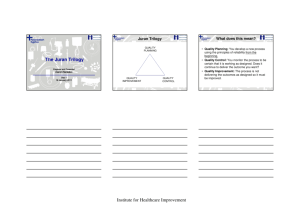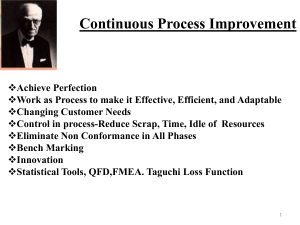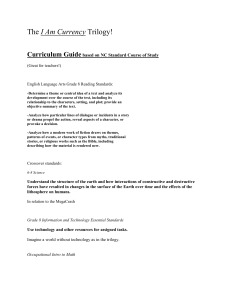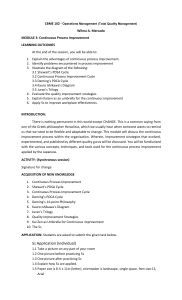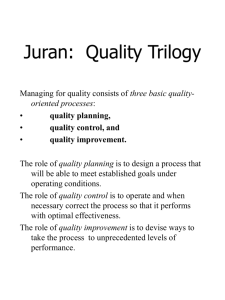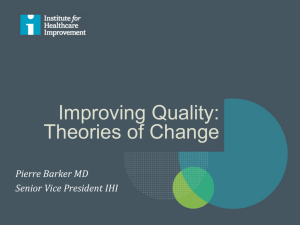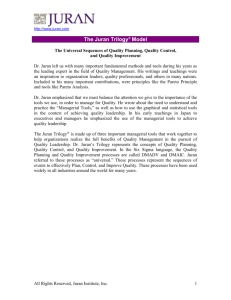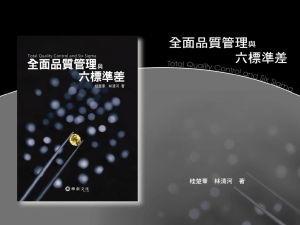Juran Trilogy: Project Quality Management Assignment
advertisement
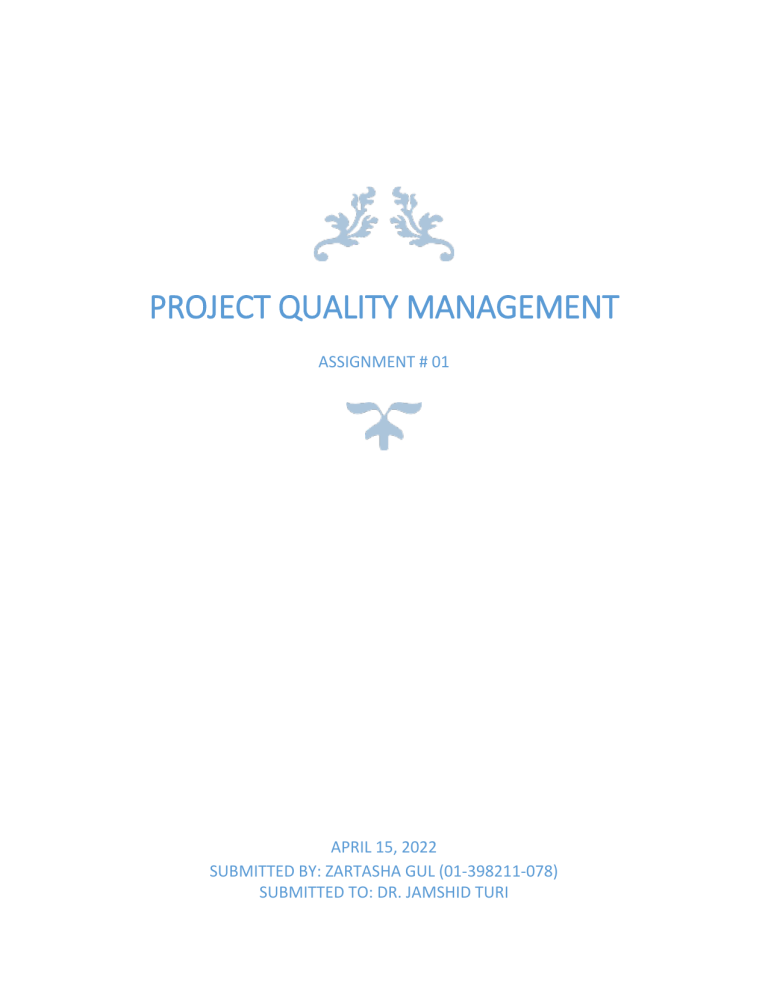
PROJECT QUALITY MANAGEMENT ASSIGNMENT # 01 APRIL 15, 2022 SUBMITTED BY: ZARTASHA GUL (01-398211-078) SUBMITTED TO: DR. JAMSHID TURI Topic: The Juran Trilogy Introduction: Joseph Juran is one of the quality gurus who made a significant contribution in the field of quality management. His quality approach was centered on strategic and planning challenges. He established the Juran Trilogy, a three-step approach to quality that comprises quality planning, quality control, and quality improvement. He believed that poor quality results from insufficient or incompetent planning, thus he proposed the Juran Trilogy. Quality, in his opinion, comprises two aspects: product features and defect-free state. Quality improvement, according to Juran, is dependent on two distinct activities: control and breakthrough. Control ensures that operations run smoothly and without variance that can be traced back to a specific cause. After a process has been evaluated and certain important improvements have been proposed and executed, a breakthrough occurs. These actions, he claims, do not have to be done in order; they can and should be done at the same time. The Juran Trilogy, also called Quality Trilogy, was presented by Dr. Joseph M. Juran in 1986 as a means to manage for quality. He proposed a universal way of thinking about quality, which he called the quality trilogy: quality planning, quality control, and quality improvement. The diagram of the Juran Trilogy is sometimes depicted as a graph, with time on the horizontal axis and the cost of low quality on the vertical axis. Quality Planning: “Quality does not happen by accident; it must be planned.” Quality planning is the structured process of designing products and services to meet new goals and ensure that customer needs are met. Steps: • Identify the customers, both external and internal. • Determine customer needs. • Develop product features that respond to customer needs. (Products include both goods and services.) • Establish quality goals that meet the needs of customers and suppliers alike, and do so at a minimum combined cost. • Develop a process that can produce the needed product features. • Prove process capability—prove that the process can meet the quality goals under operating conditions. Quality Control: Quality control is a universal managerial process for conducting operations to provide stability, to prevent adverse change, and to "maintain the status quo." Quality control can also be described as "a process for meeting the established goals by evaluating and comparing actual performance and planned performance and taking action on the difference." Steps: • Choose a control subject. • Establish Measurement. • Establish Standards of Performance. • Measure Actual Performance. • Interpret the difference (actual vs standards). • Take action on the difference. Quality Improvement: Quality improvement is the process of creating breakthrough levels of performance by eliminating wastes and defects to reduce the cost of poor quality. Steps: • Prove the need for improvement. • Identify specific projects for improvement. • Establish project improvement teams. • Diagnose the causes. • Provide remedies, prove that remedies are effective • Deal with resistance to change. • Control to hold the gains. Juran Trilogy in Research: Strategy to improve the quality of care in England NHS. The aim of the study is a "coherent national strategy for achieving high-quality, affordable care". This used the Juran trilogy as one of the concepts to help improve the quality of care in the NHS. Implementation the Trilogy Juran in SMEs Business Case Study in Indonesia. SMEs in Indonesia have a major weakness with low product quality. The study aim was to obtain information and data regarding quality management applying the Juran Trilogy. Conclusion: Juran Trilogy, a three-step approach to quality that comprises quality planning, quality control, and quality improvement. It is an improvement cycle that is meant to reduce the cost of poor quality by planning quality into the product processes.
